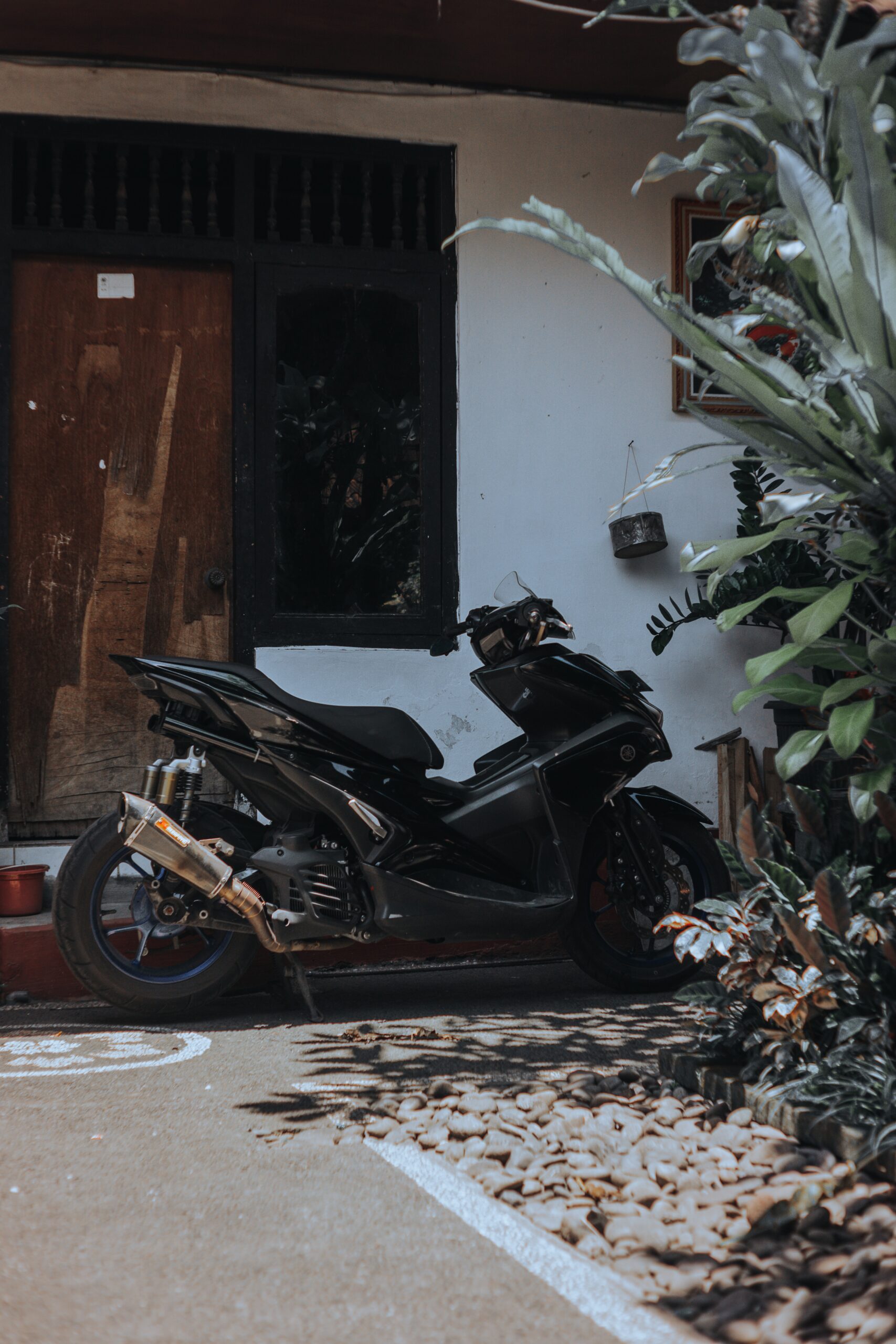When it comes to choosing skateboard wheels, your skill level plays a crucial role in determining the right fit for your ride. Whether you’re just starting out or a seasoned skater, the wheels you opt for can greatly impact your performance and overall experience. From hardness and size to shape and composition, each factor contributes to how your skateboard handles different terrains and tricks. So, let’s hit the pavement and explore the art of selecting skateboard wheels tailored to your unique skill level.
Skateboard wheels for beginners
If you’re just starting out in skateboarding, choosing the right wheels is essential for a smooth and enjoyable ride. As a beginner, it’s important to consider three key factors: the right material, optimal wheel size, and hardness and durometer. By understanding these factors, you can select the perfect skateboard wheels that will enhance your learning experience and set you on the path to becoming an experienced skater.
Choosing the right material
When it comes to skateboard wheels, the most common material used is polyurethane (PU). PU wheels offer a good balance of durability and grip, making them ideal for beginner skaters. They provide a smooth ride, absorb shocks, and ensure grip on various surfaces. Nylon wheels and solid rubber wheels are also options to consider, but they may not offer the same level of performance as PU wheels.
Optimal wheel size for beginners
For beginners, the size of your skateboard wheels is crucial. Aim for a medium-sized wheel to strike a balance between stability and maneuverability. A common range for beginners is between 50mm and 54mm in diameter. Larger wheels offer more stability, while smaller ones provide greater maneuverability. It’s important to find a size that suits your skating style and comfort level.
Hardness and durometer
The hardness of skateboard wheels is measured on a durometer scale, typically ranging from 78A to 101A. As a beginner, it’s recommended to opt for softer wheels, around the 78A to 87A range. Softer wheels offer better grip and control, making them ideal for beginners who may be less confident in their riding skills. However, keep in mind that softer wheels wear out more quickly, so it’s important to strike a balance between grip and durability.
Intermediate skateboard wheels
Once you’ve gained some experience on a skateboard and have improved your skills, you may want to upgrade to intermediate skateboard wheels. As an intermediate skateboarder, your focus should be on material considerations, finding the right size, and balancing hardness and grip.
Material considerations for intermediate skaters
Polyurethane (PU) wheels remain a popular choice for intermediate skaters due to their durability and grip. However, you may also want to explore other options such as fiberglass-infused wheels, carbon fiber wheels, or hybrid wheel options. These materials offer enhanced performance and can cater to specific skateboarding styles or preferences.
Finding the right size
As an intermediate skater, you may have developed a preference for a particular wheel size based on your riding style and tricks. While the 50mm to 54mm range is still suitable for many intermediate skaters, you may want to consider exploring larger sizes, such as 54mm to 58mm, for increased stability and a smoother ride. Additionally, the width and shape of the wheels can be customized to suit your preferences and riding style.
Balancing hardness and grip
As you progress in your skateboarding journey, you may find that you need wheels with a different hardness rating. Intermediate skaters often prefer wheels with a hardness rating between 88A and 95A. These wheels provide a good balance between grip and slide for performing tricks and maneuvers. Experimenting with different hardness levels can help you find the perfect balance for your skill level and preferred style of skateboarding.

Skateboard wheels for advanced skaters
For advanced skaters who have honed their skills and are looking for high-performance wheels, there are various factors to consider. These include high-performance materials, determining the ideal wheel diameter, and customizing hardness and shape.
High-performance materials
Advanced skaters often seek out wheels made from high-performance materials to meet their specific demands. Carbon fiber wheels, for example, offer exceptional strength and lightness, resulting in enhanced performance and speed. Other advanced materials to consider include Kevlar-infused wheels or wheels with advanced urethane formulas. These materials can significantly improve your skating experience but also come with a higher price tag.
Determining the ideal wheel diameter
As an advanced skater, you likely have a clear preference when it comes to wheel diameter. The ideal wheel diameter can vary depending on your preferred skateboarding style, tricks, and terrain. Smaller wheels, such as 50mm to 54mm, are generally suited for technical street skating, while larger wheels, such as 55mm to 60mm, are better for cruising or tackling rough terrain. Experimentation and personal preference play a significant role in determining the ideal wheel diameter for your advanced skateboarding needs.
Customizing hardness and shape
Advanced skaters often have specific requirements when it comes to wheel hardness. Harder wheels, with a durometer rating of 95A and above, are suited for sliding and high-speed maneuvers. However, softer wheels may still be preferred for certain tricks or terrain conditions. Advanced skaters also have the option to customize the shape of their wheels, with variations such as conical, square-edged, or rounded-edge profiles. These customization options allow for a truly personalized skateboarding experience.
Factors to consider for all skill levels
When selecting skateboard wheels, there are several factors that apply to skaters of all skill levels. These factors include the surface and terrain you’ll be skating on, the type of skateboarding you’ll be doing, your personal preferences, and budget considerations.
Surface and terrain
Consider the type of surface and terrain you’ll primarily be skating on. If you’ll be mainly riding on smooth surfaces, such as skate parks or well-maintained streets, you can opt for harder wheels. On the other hand, if you’ll be skating on rougher terrain or encountering cracks and pebbles, softer wheels are more suitable as they provide better grip and shock absorption.
Type of skateboarding
Different skateboarding styles require different wheel characteristics. Street skaters who focus on technical tricks and maneuvers may prefer smaller and harder wheels for better response and reduced friction. Those who enjoy cruising or downhill longboarding may benefit from larger wheels with softer durometers to handle uneven surfaces and provide a smoother ride. Determine the type of skateboarding you’ll be doing most often and choose wheels that align with those needs.
Personal preferences
Ultimately, your personal preferences play a significant role in selecting skateboard wheels. Consider factors such as the aesthetics of the wheels, brand reputation, and any specific features or characteristics you may prefer. Some skaters may have a preference for a particular brand or feel more comfortable with a specific wheel shape. Evaluating personal preferences can help narrow down your options and find the perfect wheels that suit your individual style and preferences.
Budget considerations
Lastly, it’s important to consider your budget when selecting skateboard wheels. There are options available for every price range, so it’s crucial to strike a balance between the quality of the wheels and their cost. Entry-level affordable options are suitable for beginners who are still exploring their skateboarding interests. Mid-range options offer better performance and durability without breaking the bank. For advanced skaters seeking top-notch performance, premium wheels made from high-end materials may be worth the investment. Regardless of your budget, there are quality skateboard wheels available to suit everyone’s needs.

Choosing the right material
When it comes to selecting skateboard wheels, understanding the different materials available is essential. Each material provides unique characteristics that can impact your overall skateboarding experience.
Polyurethane (PU) wheels
Polyurethane (PU) wheels are the most common and widely-used option for skateboard wheels. They offer a great balance of durability, grip, and shock absorption. PU wheels are known for delivering a smooth ride and maintaining traction on various surfaces. They are suitable for skaters of all skill levels and can provide a solid foundation for beginners to learn basic skills.
Nylon wheels
Nylon wheels are a less common option for skateboard wheels but may be suitable for specific scenarios. These wheels are lightweight and can offer excellent slide capabilities, making them a favorite among some downhill longboarders. However, nylon wheels may not provide the same level of grip and shock absorption as PU wheels, so they may not be the best choice for beginners or those seeking maximum traction.
Solid rubber wheels
Solid rubber wheels are another alternative to consider, especially for those looking for a more old-school skateboarding feel. These wheels are durable and provide a smooth ride, but they may lack the same level of grip as PU wheels. Solid rubber wheels can be a good option for cruising or tackling rougher terrains, where grip may be less essential.
Soft wheels vs. hard wheels
Skateboard wheels come in a range of hardness levels, measured on a durometer scale. Softer wheels typically have a durometer rating of 78A to 87A and offer excellent grip and shock absorption. They are suited for beginners and those who prioritize control and comfort. Harder wheels, in the 88A to 101A range, provide less grip but offer a faster roll and are better suited for tricks and sliding. Consider your skating style, terrain, and personal preferences when deciding between soft or hard wheels.
Optimal wheel size for beginners
As a beginner, selecting the right wheel size is crucial for stability and maneuverability. Consider the following factors when determining the optimal wheel size for your skateboard.
Symmetry for stability
For beginners, symmetrical wheels are generally recommended. Symmetrical wheels have the same dimensions and shape on both sides. This design provides excellent stability for novice skaters by ensuring a consistent riding experience regardless of the wheel’s orientation. As you develop your skills, you can explore different wheel shapes and profiles that suit your style.
Diameter considerations
Wheel diameter plays a significant role in how your skateboard performs. Smaller diameter wheels, typically ranging from 50mm to 54mm, offer greater maneuverability and quicker acceleration. They are ideal for street and technical skateboarding, where precise tricks and movements are essential. Larger diameter wheels, ranging from 54mm to 58mm, provide more stability and a smoother ride, making them suitable for cruising and tackling rougher terrains.
Width and contact patch
Wheel width refers to the distance from edge to edge and can influence your board’s performance. Wider wheels offer more stability and are better suited for transition or vert skateboarding. Narrower wheels provide quicker response and are preferred by street skaters. The contact patch, which is the part of the wheel that comes into contact with the ground, also affects grip. Wider contact patches generally offer better grip, while narrower ones provide less rolling resistance.

Hardness and durometer
Understanding the durometer rating of skateboard wheels is essential for selecting the right hardness level. Consider the following factors when determining which hardness is most suitable for your needs.
Understanding durometer ratings
Durometer is a measurement of the hardness of skateboard wheels. It’s measured on a durometer scale, with higher numbers indicating harder wheels. The most common durometer scale used is the A scale, which ranges from 1A to 100A. Softer wheels have lower durometer ratings, typically ranging from 78A to 87A, while harder wheels fall within the 88A to 101A range.
Choosing the right hardness
As a beginner, opting for softer wheels within the 78A to 87A range is generally recommended. Softer wheels provide better grip, control, and shock absorption, which can be beneficial when learning basic skateboarding skills. As you progress in your skateboarding journey and gain more confidence, you may consider transitioning to harder wheels with durometer ratings in the 88A to 95A range. These wheels provide a good balance between grip and slide, allowing for more advanced tricks and maneuvers.
Factors influencing hardness selection
Several factors influence the hardness selection of your skateboard wheels. The type of terrain you’ll be skating on is a crucial consideration. Softer wheels are better for rougher terrains, while harder wheels are more suited for smoother surfaces. Additionally, your personal preferences and skateboarding style play a role. Some skaters prefer softer wheels for the added grip, while others may prioritize the ability to slide and perform technical tricks, requiring harder wheels. Experimentation and experience will help you find the ideal hardness level that suits your needs and preferences.
Material considerations for intermediate skaters
Intermediate skateboarders often seek enhanced performance and are willing to explore different materials for their wheels. Consider the following options when selecting wheels as an intermediate skater.
Polyurethane (PU) wheels
Polyurethane (PU) wheels continue to be a popular choice for intermediate skaters due to their versatility and durability. PU wheels offer excellent grip, shock absorption, and smooth rides, making them a reliable choice for most skateboarding styles. They are available in various hardness levels and can cater to the specific preferences and needs of intermediate skaters.
Fiberglass-infused wheels
Fiberglass-infused wheels are a high-performance option for intermediate skaters looking to elevate their skateboarding experience. These wheels are known for their exceptional strength and stiffness, providing precise response and control. Fiberglass-infused wheels can withstand higher speeds and heavy impacts associated with more advanced skateboarding tricks and maneuvers.
Carbon fiber wheels
Carbon fiber wheels are the pinnacle of high-performance skateboard wheels. Known for their extreme strength-to-weight ratio, carbon fiber wheels offer unparalleled performance. They deliver lightning-fast acceleration, excellent durability, and precise control. Carbon fiber wheels are the top choice for advanced skaters who demand the best performance from their equipment.
Hybrid wheel options
Hybrid wheel options combine different materials to offer a unique blend of performance characteristics. These wheels often feature a combination of polyurethane and other materials, such as fiberglass or carbon fiber. Hybrid wheels can offer enhanced grip, speed, and durability compared to traditional PU wheels, making them an attractive option for intermediate skaters seeking an extra edge in their skateboarding.

Finding the right size
As you progress to an intermediate level of skateboarding, finding the right wheel size becomes increasingly important. Consider the following factors when determining the ideal size for your skateboard wheels.
Determining the ideal diameter
The diameter of your skateboard wheels affects both performance and personal preference. As an intermediate skater, you may have developed a preference or style that suits a particular wheel diameter. The optimal wheel diameter can vary based on your preferred skateboarding style, tricks, and terrain. Smaller wheels, such as those ranging from 50mm to 54mm, are generally suited for technical street skating, offering better control and responsiveness. Larger wheels, between 55mm and 60mm, provide more stability and a smoother roll, making them suited for cruising or tackling uneven surfaces.
Width and shape customization
The width and shape of your wheels can also be customized to cater to your preferences and riding style. Wider wheels offer more stability and are favored by transition skaters or those who enjoy skating ramps and bowls. Narrower wheels provide quicker response and better agility, making them popular among street skaters who focus on technical tricks and movements. Shape customization, such as choosing conical, square-edged, or rounded-edge profiles, can further enhance your skateboarding experience.
Considering weight and riding style
Your weight and preferred riding style also influence the ideal wheel size for intermediate skaters. Heavier skaters typically benefit from larger wheels, as they provide more stability and endure heavy impacts better. Lighter skaters may prefer smaller wheels for increased maneuverability. Additionally, your preferred riding style, whether it’s technical street skating, cruising, or downhill longboarding, can dictate the optimal wheel size to fulfill the demands of your chosen skateboarding discipline.
Budget considerations
As with any sporting equipment, budget considerations play a role in selecting skateboard wheels. Here are some options to consider based on your budget.
Entry-level affordable options
For beginners or those on a tight budget, entry-level affordable skateboard wheels are widely available. These wheels offer good performance and durability for beginner skaters who are still exploring their skateboarding interests. While they may not have all the bells and whistles of more expensive options, entry-level wheels are a reliable starting point to learn basic skills.
Mid-range options with better performance
Mid-range skateboard wheels offer an excellent balance of performance and affordability. These wheels are ideal for intermediate skaters who have developed their skills and are seeking improved performance from their equipment. Mid-range options often incorporate better materials, such as high-quality polyurethane, to deliver enhanced grip, durability, and shock absorption.
Premium wheels and high-end materials
Advanced skaters who demand the highest level of performance from their skateboard wheels may opt for premium wheels made from high-end materials. Carbon fiber wheels or wheels with advanced urethane formulas are among the top choices for those seeking the ultimate skateboarding experience. Premium wheels often come with a higher price tag but deliver exceptional performance, speed, and durability that can greatly enhance the skateboarding capabilities of experienced skaters.
Balancing quality and cost
Regardless of your budget, there are quality skateboard wheels available to suit every skater’s needs. It’s essential to strike a balance between the quality of the wheels and their cost. Carefully consider your requirements, skill level, and long-term commitment to skateboarding when making a decision. Remember that investing in durable, high-quality wheels can save you money in the long run, as they will last longer and provide a more enjoyable skating experience.

